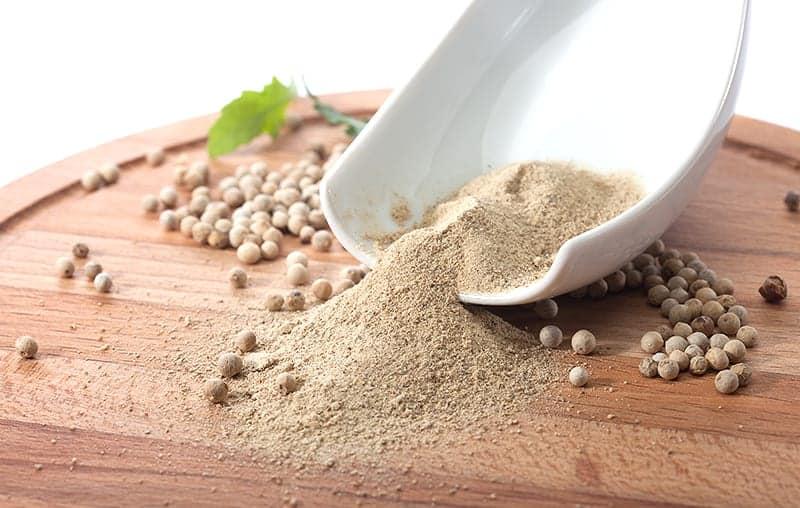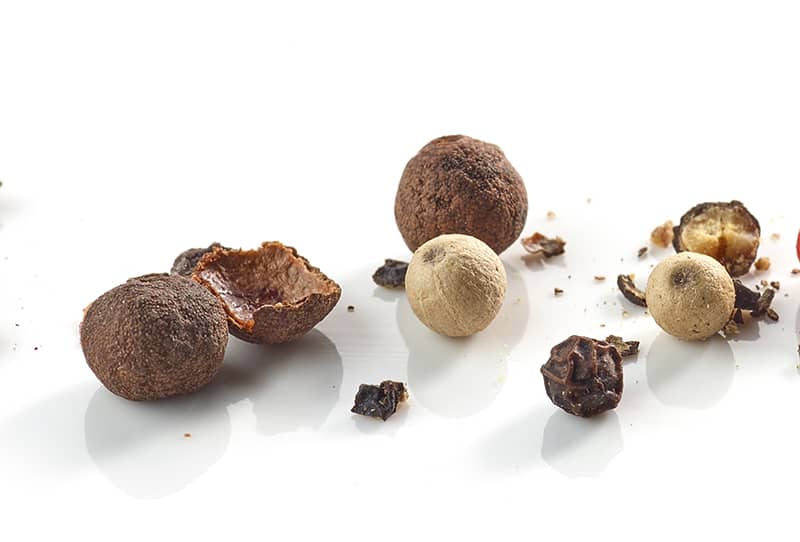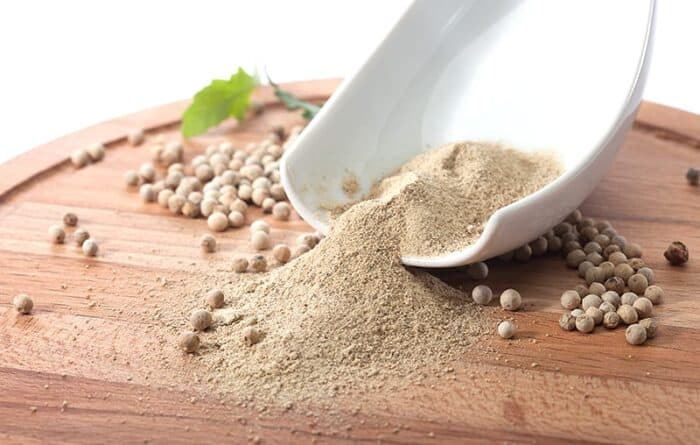This post may contain affiliate links. Please read our privacy policy for additional information.
It’s happened to everyone at least once – you are following along a great recipe that you are incredibly excited for, and it says white pepper. However, you only have black pepper, but that’s not going to be a problem, right? It’s not going to ruin your broccoli cheese soup, is it? Unfortunately, despite how similar the names are, they couldn’t be more different. So what exactly is white pepper? What makes it so separate from black pepper?

What Actually Is White Pepper?
White pepper is well known as a common ingredient in Chinese and general east Asian cuisine but isn’t that common in the west. Most of the time, its sold as a relatively exotic ingredient, only really useful for specialty dishes. However, white pepper isn’t anything like rare, nor is it especially unique. It is actually fundamentally the same thing as black pepper, only missing a small part.
When pepper berries (yes, that’s right, pepper is actually a berry!) are harvested, if they are to be sold as black pepper, they are dried and then stored.The black, wrinkled parts of black pepper are actually the dried flesh of the berry.
However, if you were to soak the berries before drying them and allow the outer flesh to decompose and rub off in a process known as ‘retting,’ what’d be left with is white pepper. This soaked and peeled pepper seeds are then dried and sold as white pepper. They also have a variety of useful health benefits.
You would think that such a similar product would have a very similar taste, but in actual fact, they taste incredibly different.

White Pepper vs. Black Pepper
The key difference between white and black pepper is how, for want of a better word, “spicy” it is.
There isn’t any actual capsaicin in peppers to make it spicy like chili peppers, yet both white and black pepper has a type of spiciness that is entirely unique. Instead of it burning your mouth, pepper makes your lips pucker and your tongue tingle, almost like biting into an earthy flavored lemon.
However, black pepper is far more noticeable than white pepper in this regard. When you bite down on a black peppercorn in your food, you immediately know what you’ve done. Your mouth is filled with that intensely uncomfortable, almost oppressive feeling of too much pepper. If you were to bite down on a white peppercorn, however, the intensity would be far more muted.
The base flavor of both black and white peppercorns are pretty similar, but black pepper is more recognizable to people in the west as a conventional flavor. After all, every dining table in the USA has some black pepper right next to the salt.
The reason this is the case is that black pepper is far more pronounced in flavor, making it perfect for use as a seasoning to preserve meat. Its strong taste helped mask any potential off-flavors from improperly preserved meat; this made it become a familiar flavor throughout the west, despite the fact that it isn’t as versatile or muted as white pepper.
While white pepper requires a more challenging production process, it is used in far more dishes, though mainly in East Asian cuisines. It can be used to flavor stocks, marinades, or just as a regular seasoning to go along with salt, as it doesn’t overpower food as much as regular black pepper does.
Though white pepper isn’t going to be as common as black pepper in western recipes, what do you do if you need some white pepper, but can’t find any at your local supermarket? What can you use as a replacement?
White Pepper Substitute
There aren’t going to be a lot of times when you need to find some kind of substitute for white pepper, but for those rare occasions, there are a few things you can do.
Obviously, the next best thing to white peppercorns is going to be black peppercorns. However, black pepper is way more pronounced in flavor, so you might notice a pretty strong difference.
If you don’t want as intense a flavor, consider using green pepper! Green pepper is just regular peppercorns that have been picked a little bit earlier. They are usually pickled, but can sometimes be found raw, making them easy to grind up and use as a simple white pepper replacement.
If you don’t have any pepper in the house anywhere (for some reason), then you could even use some ground ginger or ground mustard in your cajun seasoning recipe.
Both have a sharp flavor that is slightly reminiscent of pepper, while also bringing in a bit of color and freshness.
Of course, if you are really struggling, you can just leave it out entirely.












Leave a Comment or Recipe Tip